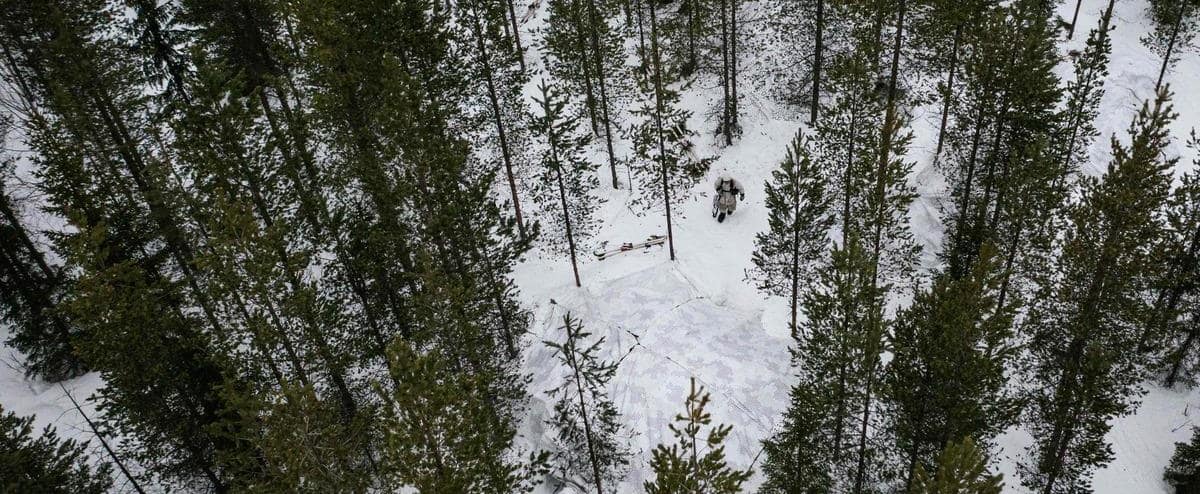Washington, United States | In February, a rare polar cold swept Texas, killing dozens and causing massive power outages that lasted for days.
• Read also: The immersive exhibition “Under the Ice with Mario Ser” at his residence at the Convention Center of Quebec
• Read also: Unprecedented rain near the top of the ice sheet in Greenland
• Read also: Maritime traffic: “unicorns” in the Arctic are threatened by ships
This severe weather episode also caused record damage estimated at $200 million.
While it has now been proven that global warming causes massive heat waves, the question of its effect on such cold waves remains the subject of intense scientific debate.
For the first time, a large study published Thursday in the journal Science has successfully demonstrated a link between changes caused by global warming in the Arctic and bouts of winter cold in the northern hemisphere, in the United States, but also in Asia.
Matthew Barlow, one of the study’s co-authors, acknowledges, “It seems counter-intuitive and unexpected that this very apparent warming will occur in the Arctic, and that this is causing cooling in other regions.”
However, despite this discrepancy, the researchers are conclusive.
“I was a little surprised that the results were so clear, that we were able to establish such a direct link,” says University of Massachusetts Lowell professor of climate sciences.
polar vortex
The North Pole is the fastest warming region on the planet.
But there are two phenomena at work in reality: on the one hand the rapid melting of sea ice, and on the other the increase in snow cover in Siberia in particular.
Melting snow causes a strong warming, as the ocean absorbs more heat, while additional snow in Siberia, reflecting more sunlight, causes it to cool slightly.
In a complex indirect chain reaction, these two developments combined lead to a disturbance in the atmospheric circulation.
The researchers focused on their effect on the polar vortex. These are very strong winds that blow near the pole in winter, are located at very high altitudes, in the stratosphere (the atmosphere consists of the troposphere, in which we live, and then the stratosphere directly above it).
Normally, the polar vortex forms a circle capable of containing cold air.
“But under the influence of climate change in the Arctic, it is weakening and becoming elliptical,” says Matthew Barlow.
The most significant atmospheric turbulence rises from Earth and then “bounces” when it reaches the polar vortex, where it is redirected toward the surface.
The researcher explains that this modification in the movement of the depressions “pushes the jet stream towards the south.” The jet stream is an air current that blows from west to east.
“And when you push the jet stream south, it brings cold air with it.”
better expectation
The strength of this study is that it combines two approaches. First, an analysis of direct observations made over the past forty years.
The researchers chose the periods when the polar vortex was stretched in an elliptical shape: thus they noted that before each of these episodes, temperatures changed more markedly in the Arctic, for example due to snowfall. So in the weeks that followed, it was much colder in North America.
For the second approach, they used a climate model to check the cause-and-effect association by varying different parameters.
This discovery could have several implications.
First of all, identifying this mechanism could make it possible to better anticipate severe cold spells, “probably several weeks in advance,” Matthew Barlow hopes.
This work also shows that it is necessary to better prepare for the possibility of very cold waves, even if the globe is generally warming.
Second, the researchers hope that this warning will help residents realize the global impact of the climate crisis, and therefore the need to fight it by reducing greenhouse gas emissions.
Matthew Barlow insists, “Arctic climate change isn’t just something polar bears deplore.” “It can really affect you.”

“Extreme twitteraholic. Passionate travel nerd. Hardcore zombie trailblazer. Web fanatic. Evil bacon geek.”


